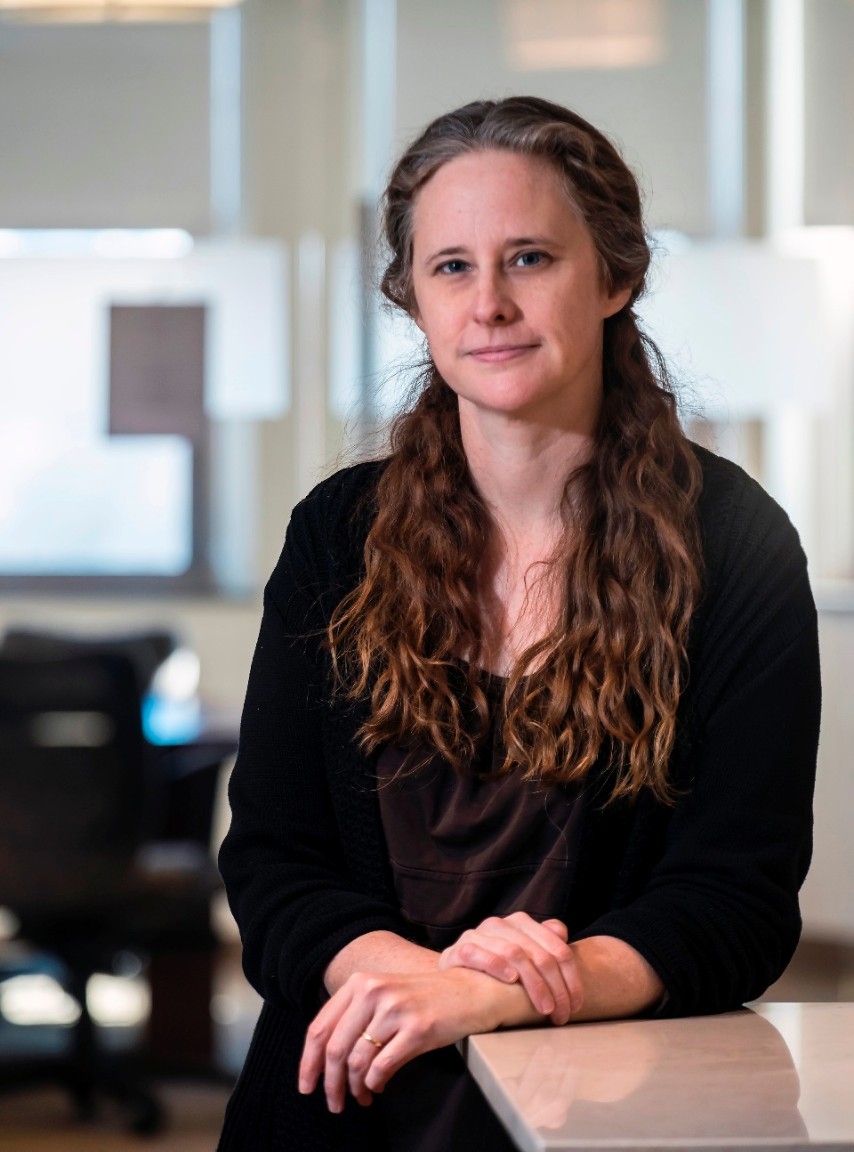Photo credit: PlusLexia.
A Boston College computer scientist is directing her research toward assisting a relatively underserved population: adults with autism.
Supported by a $500,000 research grant from the National Institutes of Health, Assistant Professor of Computer Science Emily Prud'hommeaux will examine speech patterns of high-functioning adults with autism spectrum disorder with the goal of developing an automated way to analyze spoken language deficits, which in turn could lead to therapies and interventions to aid this population in social and job-related tasks.
“Very few studies have been done on adults with autism,” said Prud’hommeaux, who joined BC's Computer Science Department in January from the Rochester Institute of Technology, where she co-founded the Computational Linguistics and Speech Processing Lab. “Research in this area is important because high-functioning adults with autism, despite having achieved the same educational milestones as their neurotypical peers, often have difficulty finding employment and making friends because of their communication challenges. And unlike children with autism, adults with autism have very few services available to them.”

Emily Prud'hommeaux (Lee Pellegrini)
Prud’hommeaux is collaborating on the study with Laura Silverman, associate professor of developmental and behavioral pediatrics at the University of Rochester Medical Center. Cecilia Ovesdotter Alm of Rochester Institute of Technology and Jan van Santen of Oregon Health & Science University will serve as advisors, sharing previously collected data and assisting with experimental design.
The three-year grant, administered by NIH’s National Institutes on Deafness and Other Communication Disorders, will fund a clinical study of adults with autism to determine the language and communication style they use when completing a variety of tasks, such as playing a cooperative game, retelling a story, categorizing objects, or describing a picture.
Prud’hommeaux will take the sound recordings from this study and use speech recognition software to create transcriptions. “One of the exciting parts of this projects is that because we are using speech recognition software, we will be able to collect much more data per person to analyze.”
Prud’hommeaux will then be able to automatically identify specific areas where an adult with autism does not communicate in a socially appropriate way or the way in which a neurotypical adult would communicate.
People with autism can miss social cues and subtle ways adults communicate, said Prud’hommeaux.
An adult with autism who wants to give an instruction to someone else might phrase the request in a way that the directive is unclear or communicate it in an atypical manner. For example, someone with autism might say “The person needs to hand over the book,” while a neurologically typical person might say, “Could you please hand me the book?”
“ Research in this area is important because high-functioning adults with autism, despite having achieved the same educational milestones as their neurotypical peers, often have difficulty finding employment and making friends because of their communication challenges. And unlike children with autism, adults with autism have very few services available to them. ”
Prud’hommeaux’s work as a computer scientist and research in natural language processing are enhanced by her background in linguistics. As an undergraduate at Harvard, she was a classics and linguistics major. She went to graduate school for linguistics, but a computer science class she took piqued her interest. She worked in the software industry as a linguistic engineer for several years, where she gained experience using computing and machine language to understand and analyze language. When searching for a doctoral program, she specifically looked for one that focused on artificial intelligence and natural language processing. She went on to earn a Ph.D. in computer science and engineering from OHSU, the medical and graduate engineering school for the state of Oregon.
Prud’hommeaux said that this study is setting the stage for a future proposal to develop an automated software tool for analyzing spoken language to identify specific areas of weakness in conversational expression among this population. Such a tool could help speech and occupation therapists and other health professionals develop targeted therapies and interventions for adults with autism that would help them with employment and relationships, allowing for more independent living.
Kathleen Sullivan | University Communications




